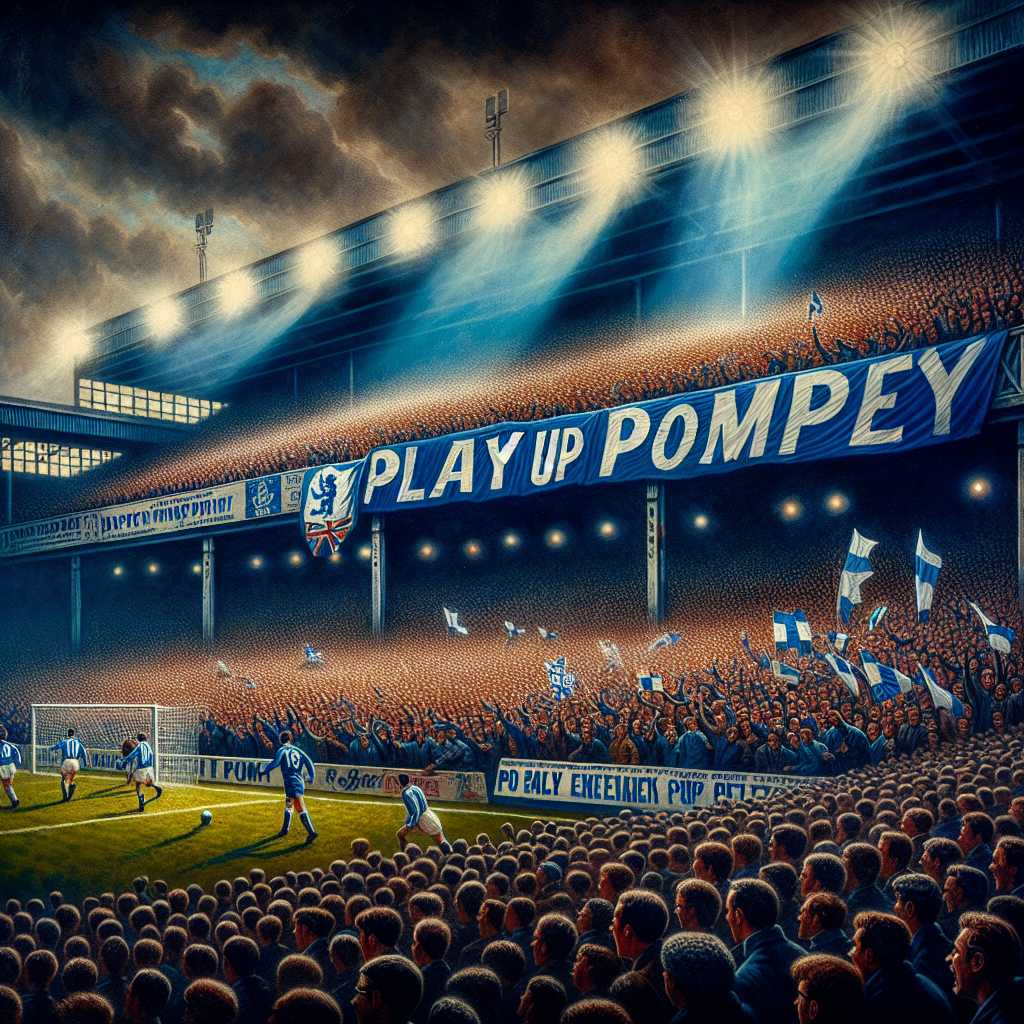The History and Legacy of Portsmouth Football Club
Portsmouth Football Club, fondly referred to as Pompey by its legion of devoted fans, commands a significant place in the annals of English football. Tracing its foundation to the late 19th century, the club has weathered the vicissitudes of fortune, exemplifying both the highs of triumphant victory and the lows of grave adversity.
Foundation and Early Years
The inception of Portsmouth FC dates back to 1898 when the club was founded by local businessmen. They sought to create a professional football presence within the city of Portsmouth, which already had a strong association with maritime activity and the Navy. The team played their early games at Fratton Park, a stadium that remains their home ground to this day.
In their nascent years, Portsmouth operated outside the Football League, honing their skills and establishing a solid fanbase. It wasn’t long before they were admitted to the Southern League where they saw significant success.
Rise to Prominence in English Football
With persistence and significant skill improvements, Portsmouth was accepted into the Football League in 1920. Their initial years were marked by steady progression until the golden era of the late 1930s and early 1940s when Pompey clinched the top prize – winning the First Division title twice consecutively in 1949 and 1950 under the tactical nous of manager Bob Jackson.
As wartime cast its shadow, competitions were interrupted but this did not dampen the spirits at Portsmouth FC. The team persevered through these challenging times and continued to enjoy local support, resuming full-time competition at the war’s conclusion.
Fluctuations in Fortunes
Portsmouth experienced mixed fortunes following their peak years. Like many clubs with rich histories, they grappled with financial constraints, leading to fluctuating spells in various divisions, including time spent in the old Second Division and then its successor, the newly created Championship after league reorganization.
Nonetheless, during intermittent periods of success, the club retained its ability to surprise on-pitch adversaries as well as delight its enduring fans. Notable instances including winning the FA Cup in 2008 under manager Harry Redknapp – a victory that took fans back in memory to their 1939 FA Cup triumph.
Challenges and Community Support
The turn of the new millennium saw Portsmouth recharge their ambitions. Their eventual Premier League stay included memorable play against some of England’s footballing giants. Nevertheless, financial excesses and subsequent struggles led to a plummet down the leagues, administrative troubles, and periods of fan disillusionment.
Portsmouth’s true heart was showcased when fans came together to save the club from oblivion through collective engagement and community ownership. This resilience wrote perhaps one of its most poignant chapters in Portsmouth’s legacy – signifying not just survival but rebirth out of adversity.
Current Status and Future Outlook
Presently in League One, Portsmouth continues striving toward former glories while grounding itself in sensible administration and fiscal prudence. The focus on youth development has signaled a long-term strategy that balances ambition with sustainability.
Portsmouth’s loyal following has seen a consistency in season ticket sales and matchday attendance – a testament to both communal affection for the club and anticipation for what might lie ahead. Recent developments suggest an upward trajectory as off-field stability starts reflecting on-field performances.
Notes
Image Description: A rowdy crowd at Fratton Park is visible under floodlights with passionate supporters donned in blue and white cheering for Portsmouth FC. A banner reading “Play Up Pompey!” stretches across one section of stands, while on-field action depicts players in full match intensity.
